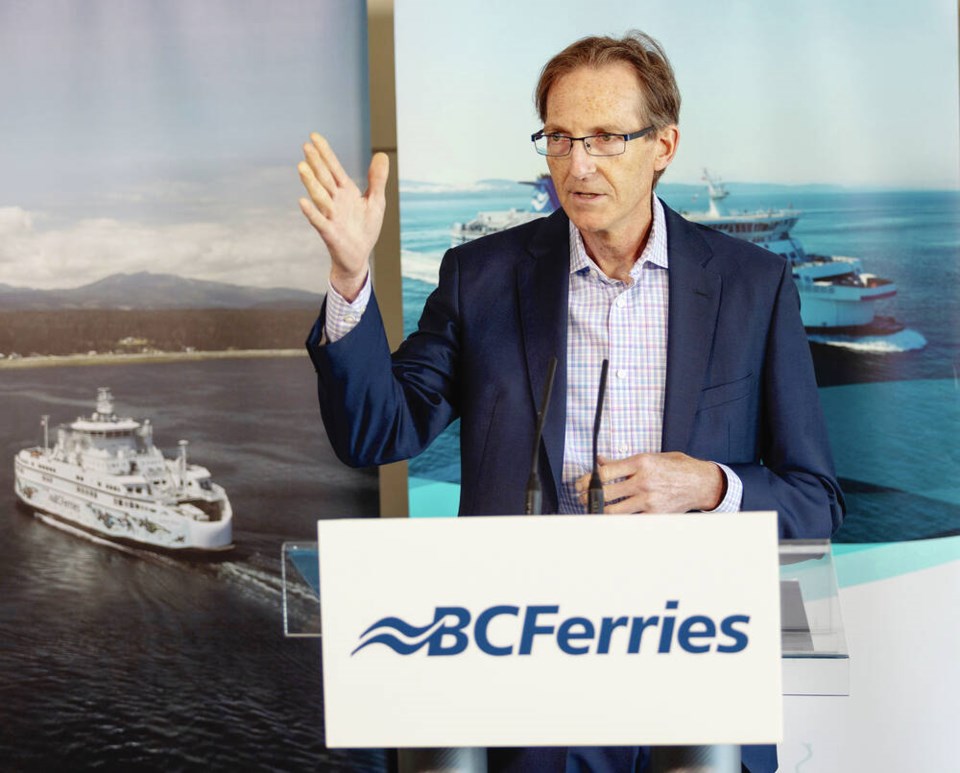The Canada Infrastructure Bank is loaning B.C. Ferries $75 million to help buy four new electric Island-class ferries and install charging infrastructure.
“Partnering with B.C. Ferries on the CIB’s first electric ferry financing will help to accelerate the electrification of one of the world’s largest ferry networks,” said Ehren Cory, chief executive of the bank, a federal Crown corporation.
“In addition to their environmental benefits, the new vessels will be quieter and offer more enjoyable commutes for local residents and visitors.”
While existing Island-class ferries are equipped to run on both diesel fuel and electricity, the new ferries will be fully electric. The loan does not cover the full cost of the ferries but helps the company address high initial costs, Cory said.
The loan marks “the start of our partnership” with B.C. Ferries, he said.
B.C. Ferries has ambitious plans, he said, adding that this initial electrification is the start of a much bigger vision.
“Hopefully, [the loan] accelerates them on that journey and we may be partners with them all the way along.”
Nicolas Jimenez, B.C. Ferries president, said the partnership with the bank to deliver the four new ferries “will increase system capacity, improve our flexibility to move ships across routes and make it easier to train and deploy our teams.
“It’ll also help us achieve important environmental benefits. All of this increases our passengers’ confidence we’ll get them where they need to go in a safe, reliable and environmentally conscious way.”
Federal Transport Minister Pablo Rodriguez said electric ferries will benefit the environment and communities; they’ll be quieter and have lower carbon emissions.
“This is another step toward Canada meeting its commitment to net-zero emissions by 2050.”
Plans for battery-electric ferries and terminal upgrades are to be completed by fiscal 2027 and are expected to reduce annual greenhouse-gas emissions by an estimated 9,000 tonnes, a bank statement said.
“Our job is to make investments in new infrastructure that helps move our country forward on goals like decarbonizing our train, transit and transportation systems,” Cory said, adding this includes broadband and digital infrastructure and economic growth and productivity.
“We lend to projects to help them defray some of the higher upfront costs of infrastructure investments.”
The bank’s low-cost loan rates are “very attractive and favourable,” Cory said. He did not disclose the interest rate but said this is a long-term loan.
Last year the bank started talking to B.C. Ferries about its electrification program, Cory said. The loan helps “smooth out” the transition to electricity and means the company can make investments sooner, he said.
B.C. received its first two Island-class vessels in 2020.
Repayment of the loan will come from standard operating revenues comprised of passenger fares and retail revenues, the bank said.
>>> To comment on this article, write a letter to the editor: [email protected]



